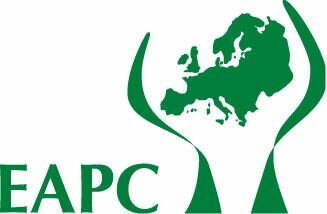|
6° Congreso Nacional |
|
|
The Spanish Association had it sixth conference in San Sebastian in the beginning of June 2006 (http://www.secpalsansebastian2006.com/) with more than 1200 participants. Palliative care is rapidly developing in Spain as I can understand. During the conference several interesting discussion and events took place. Most of it of clinical value for the participants from Spain. However the sessions on research, organisation of care and palliative medicine as a sub speciality have interest outside the Spanish palliative care society. The fourth EAPC conference (https://eapcnet.org/congresses/barcelona.html) was organised in Barcelona, Spain in 1995. At that time palliative care was in its infancy in Spain. It is interesting to see how palliative care have rapidly developed in Spain during the last decade. Based upon the “Catalane Modell” on how to organise palliative care is soon implemented into the public health care system in Spain. At the last day of the conference at “prime time” on Saturday night palliative care was covered over national TV channel to promote human rights and specifically the issue related to end of life care. A first meeting was held during the conference between palliative care and oncology with the chairs from all of the national society’s participating. The meeting was blended with international experts. It is evident that there is a need to discuss how to optimize collaboration between oncology and palliative care. Not only at the national Spanish level but also at a European level. A similar meeting with the European collaborators in oncology, European society of medical oncology (ESMO) took place during the last EAPC research forum in Venice. In many countries today palliative medicine is promoted as a new sub-speciality. In Spain this task is ongoing as it is in several other countries such as USA. The current status in Spain is that it probably soon will be acknowledge as a built upon speciality (sub speciality) coming from several of the main medicine disciplines. Palliative care research seems to be less developed in Spain – and unfortunately there are no full time Professor in palliative medicine at any of the medical schools. However several doctors have associate professor ships in various universities in Spain and it is an emerging interest and activity to develop palliative care research in this country. In the congress supplement of Medicina Paliativa (where Maria Nabal is the editor) published the Spanish data from the EAPC Cross Sectional Survey presented by Nuñez Olarte with 10 Spanish centres taking part of the survey. I am sure that Spain in the next decade also will develop palliative care research and hopefully be one of the main collaborators in future palliative care research on a European level. We all should look to Spain bring their experience and enthusiasm into the development of palliative care at an European level. Some of the priorities as it is in Spain should be to acknowledge Palliative Medicine as a Sub Speciality in all European Countries, to acknowledge palliative care as a human right in the public health care system or as EAPC say it “Palliative Care for all who are in need of it”. Stein Kaasa
|
